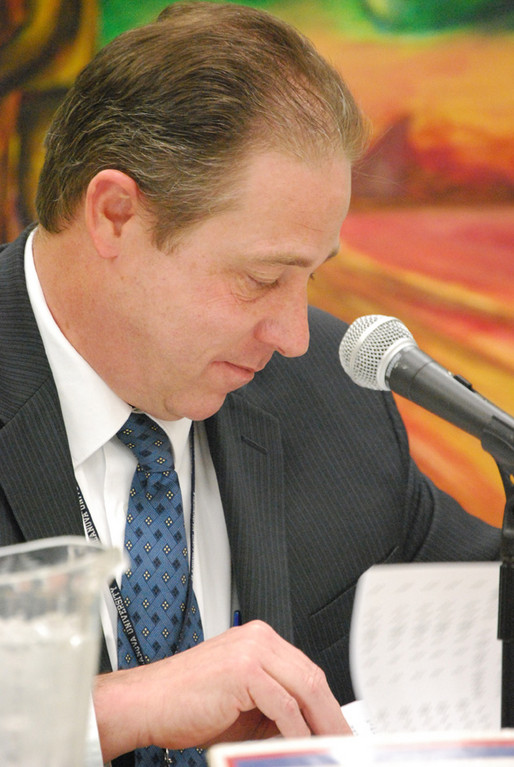School budget woes in Rockville Centre
Less state aid, higher expenses will impact district spending plan
The mood was somber as school board trustees and Rockville Centre school district administrators sat down on Feb. 1 for the first of six public work sessions on the 2011-12 budget.
Earlier that day, Gov. Andrew Cuomo had unveiled an executive budget proposal that contained $1.5 billion in cuts to education in New York state. Under the plan, Rockville Centre would lose 15.5 percent of its anticipated state education aid, roughly $1.2 million, while Nassau County districts would average a loss of more than 11 percent — far greater than other areas of the state.
“We will have to figure out how to deal with this,” said Superintendent Dr. William Johnson. “This really is not fair. [Cuts] should be shared equally. This is a woefully disproportionate hit. It boggles the mind and is very, very troubling. They’re used to having more and more money from Long Island and they get away with it. It just has to change.
“This is a different budget year with losses in revenue and crisis in New York state,” Johnson added. “We need to keep our eye on the intent of the State Education Department and the federal government. We cannot lose sight of the mission of this school district to graduate students prepared and ready for college.”
Before turning to Assistant Superintendent Robert Bartels for an overview of the “big-ticket items” in the proposed budget — many of which, administrators said, are outside the district’s control — Johnson added that tax cap legislation, supported by Cuomo and passed by the Senate on Jan. 31, is “really problematic” and could jeopardize the district’s ability to consistently provide for growth in its students’ performance.
While there are no union contractual increases in the 2011-12 spending plan, Bartels told the handful of people who braved freezing drizzle to come to the work session that state-mandated increases in teacher and employee retirement funds would total nearly $1.8 million. Employer contributions to the teacher retirement fund would increase from 8.6 to 11.5 percent, while district contributions to the employee retirement fund would rise by more than 4 percent.
Although teachers and employees now contribute more to their health insurance, the district’s contribution would rise as well.
Other increased costs in the proposed spending plan would likely include additional funds for special education if necessary, an additional teacher to extend elementary foreign language instruction to the fifth grade and money to cover a new Nassau County sewer tax.
The district has yet to set aside a reserve fund to cover successful property tax assessment challenges, traditionally paid by the county, Bartels said, because the amount it would need is not yet known.
The increases in expenditures are not matched by revenue increases, Bartels noted, and with historically low interest rates continuing, the district’s cash reserves have barely grown.
He pointed out that the district has saved money by bargaining with its unions directly, avoiding legal costs. Other economies include converting district oil burners to natural gas, participation in an energy performance survey and the sharing of some transportation costs and bids on purchases with other districts.
One of the first casualties of an austere 2011-12 budget was a plan to consider implementing an International Baccalaureate Middle Years Programme at South Side Middle School, and a teaching position associated with the program. “We’re postponing it, not abandoning it,” said Christopher Pellettieri, assistant superintendent for curriculum. Pellettieri said he believes educators can keep the program’s goals in mind and be ready for an IB middle years program down the road, as they work to realign the district’s curriculum to more rigorous state and national standards.
The next budget work session, one in a series that will tackle line-by-line expenditures, is scheduled for Feb. 15 at 7 p.m. at South Side High School. (See this week’s editorial for a complete list of public budget sessions leading up to the May 17 school budget vote.)
Comments about this story? RVCeditor@liherald.com or (516) 569-4000 ext. 208.

 50.0°,
Overcast
50.0°,
Overcast 




